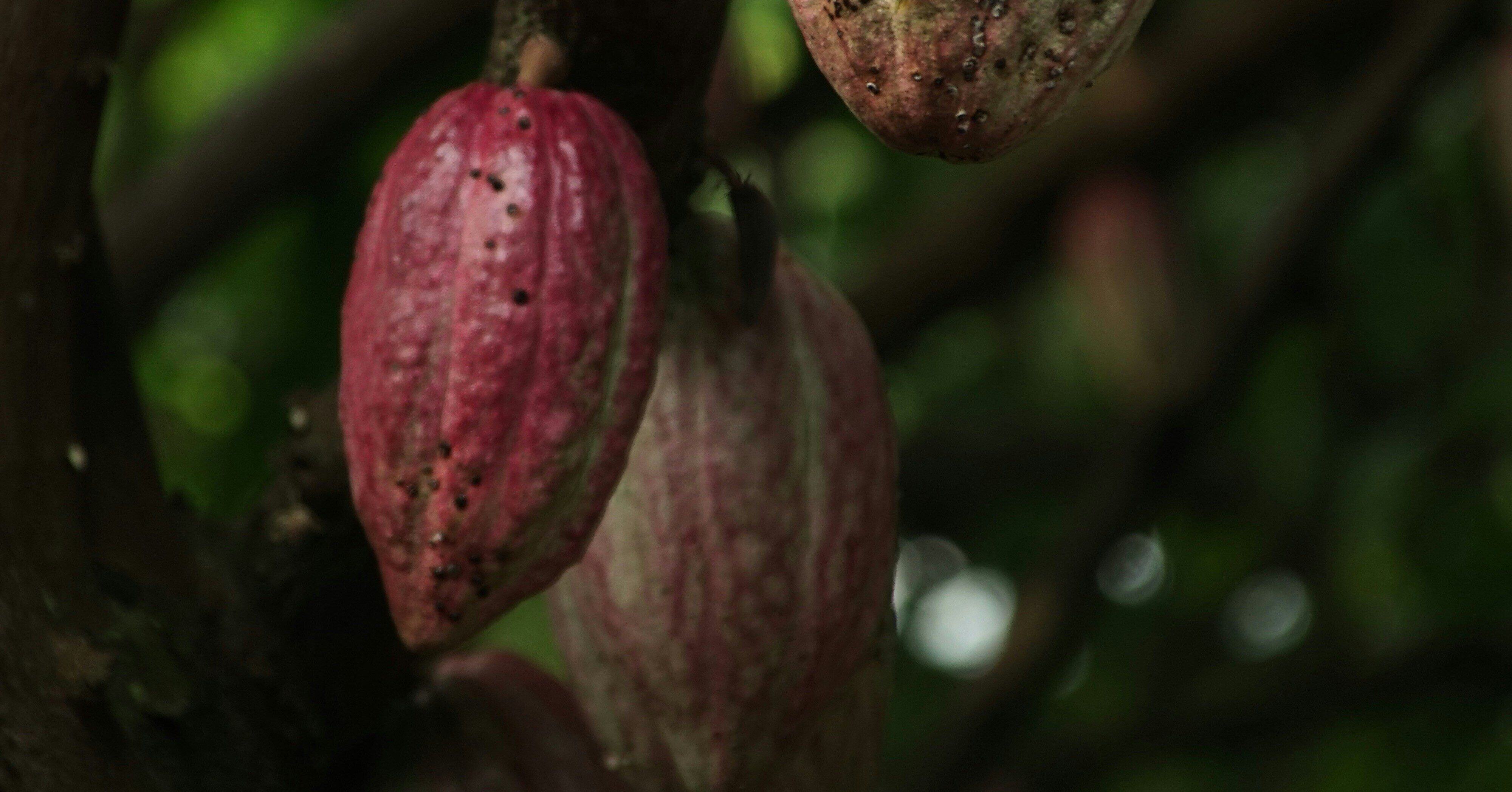7 min read
Unlocking Opportunities with EUDR: A Pathway to Innovation and Sustainability
By: Johannes Fiegenbaum on 9/25/24 10:59 AM

Explore the opportunities of EUDR for businesses and farmers, driving innovation, collaboration, and sustainability in deforestation-free supply chains.
Table of Contents
Introduction
The European Union Deforestation Regulation (EUDR) is a landmark in global efforts to combat deforestation. I have written extensively about it in this article: Demystifying the EUDR Regulation: Understanding Its Impact on Commodities and Compliance Requirements.
In 2023 alone, tropical forests equivalent to ten football fields were being lost every minute, much of it linked to products exported to the EU. The EUDR is designed to change this by requiring companies to prove that their commodities are deforestation-free.
More than just a compliance measure, the EUDR offers businesses, governments, and farmers an opportunity to collaborate and innovate, leading to stronger, more resilient supply chains and positive environmental impacts.
The EUDR: More Than Compliance
Although some industry groups and governments have pushed for delays, the EUDR is already fostering positive change. In producer countries, companies and small-scale farmers are using the regulation as a chance to increase transparency and traceability in their supply chains, creating a competitive advantage in the global market. The EUDR could particularly benefit small producers by providing them with improved access to markets and financial services.
Rather than seeing the EUDR as a regulatory burden, many businesses are embracing it as an opportunity to differentiate themselves in the marketplace and lead in sustainability. By doing so, they enhance both their brand reputation and compliance strategies.
Enhanced Supply Chain Transparency and Collaboration
One of the most significant opportunities the EUDR presents is the chance to improve supply chain transparency. By requiring companies to trace the origins of their raw materials, the regulation encourages stronger relationships with suppliers, which ultimately boosts both transparency and accountability.
Businesses are also working more closely with governments and NGOs to build sustainable, deforestation-free supply chains. This collaborative approach creates win-win outcomes for all stakeholders—businesses thrive, farmers improve their livelihoods, and forests are preserved.
Companies already working with the FCS, Forest Stewardship Council, enjoy a headstart to EUDR. While FSC does not ensure automatic compliance to EUDR, FSC is working on modules that bridge the gap to it easily. FSC’s Regulatory Module aids FSC certificate holders in aligning their practices with EUDR requirements, simplifying the compliance process. This module serves as an additional standard to existing FSC certification requirements for forest management, chain of custody, project certification, controlled wood, and accreditation.
Innovation as a Byproduct of Compliance
The EUDR is driving innovation in how commodities are grown, sourced, and monitored. Technologies like farm mapping and digital tracking systems are being implemented to ensure compliance with the regulation. These innovations not only benefit the environment but also improve business efficiency and reduce costs.
Companies that invest in deforestation-free supply chains are positioning themselves as sustainability leaders. This proactive approach not only helps them comply with current regulations but also prepares them for future sustainability demands.
Supporting Smallholder Farmers for Long-Term Success

Smallholder farmers play a critical role in the success of the EUDR. Many national initiatives are helping these farmers map their farms, comply with deforestation regulations, and access key markets such as the EU. These efforts help farmers stay competitive while promoting sustainable agricultural practices.
Countries like Ghana have already developed traceability systems to track commodities like cocoa and ensure they are deforestation-free, improving both transparency and competitiveness. Ghana’s national cocoa traceability system was established to ensure smallholders are not excluded from the market due to a lack of compliance systems. It has already facilitated the mapping of over 1.2 million farms and 800,000 farmers. Additionally, it aims to lower compliance costs and boost competitiveness, making Ghana a desirable source of EUDR-compliant cocoa.
The now operational system enables all cocoa to be traced back to its original plot. Ghana has also created a deforestation assessment model, along with tools and instruments to evaluate and prevent child labor risks, helping farmers comply with relevant national laws.
A Holistic Approach to EU Regulations
The EUDR is part of a broader EU framework that includes regulations like the Corporate Sustainability Due Diligence Directive (CSDDD) and the Corporate Sustainability Reporting Directive (CSRD). By adopting a holistic approach to these regulations, businesses can streamline operations, reduce costs, and embed sustainability into their core business models.
Turning Challenges into Opportunities
The EUDR is more than just a regulatory hurdle - it’s an opportunity to transform how businesses operate. By embracing the regulation, companies can make strategic decisions about where and from whom they source their products. Enhanced transparency, stronger collaborations with suppliers, and a focus on sustainability can all lead to improved resilience and a competitive advantage.
For farmers, the EUDR presents an opportunity to improve their financial situation and access new markets. The regulation is driving innovation in supply chain management, helping smallholders build long-term business relationships and secure financial support. In this way, the EUDR creates a pathway for farmers to remain competitive while contributing to global sustainability goals.
How to start?
You should create several conceptual supply chain diagrams illustrating how your company trades each forest-risk commodity covered by the EUDR. Emphasize where your company acts as the Operator/Trader and where you deal in products with an HS customs code listed in Annex 1 of the EUDR.
As a next step you could use the AFi self-assessment tool. Well, it's an Excel-file at the bottom of this page: How to: Use the AFi self-assessment tool. This checklist companies better understand how to use the Accountability Framework through the assessment of their company policies, practices, and systems.
The AFi Coalition, comprising over 25 global environmental and human rights NGOs, advocates for and facilitates the Accountability Framework's implementation, working with companies in agricultural and forestry commodities to integrate it into their operations and supply chains.
Conclusion: A Stepping Stone to a Sustainable Future
The EUDR is more than a compliance hurdle - it's a transformative opportunity. By embracing the regulation, businesses can make strategic decisions about sourcing, enhance supply chain resilience, and foster innovation. For farmers, the regulation offers a path to improve their livelihoods and secure access to new markets.
The future belongs to those who can adapt and thrive in a world where sustainability is no longer optional. By embracing the opportunities the EUDR provides, businesses, governments, and farmers can create lasting positive change for both people and the planet.
Feel free to reach out if you’re looking for guidance on navigating the EUDR and other sustainability regulations. Together, we can turn compliance into a competitive advantage and create long-lasting positive change.
Frequently Asked Questions (FAQ) – EUDR Opportunities
What is the EUDR?
The European Union Deforestation Regulation (EUDR) requires companies to prove that certain commodities and products are deforestation-free and legally produced. It aims to halt global deforestation linked to EU trade.
Who is affected by the EUDR?
Any company, trader or farmer dealing in commodities like cocoa, coffee, palm oil, soy, timber, cattle and their derived products (e.g. chocolate, leather, furniture) that are placed on the EU market.
How does the EUDR impact supply chains?
It increases transparency by requiring full traceability to the plot of land. This encourages digitisation, stronger supplier relationships and better risk management across the value chain.
What are the benefits of complying with the EUDR?
Compliance drives innovation, builds resilience and enhances brand credibility. It helps businesses stand out as sustainability leaders while preparing for future ESG regulation.
How does the EUDR support smallholder farmers?
Through mapping initiatives, training and access to digital traceability systems. National schemes like Ghana’s cocoa traceability system help smallholders stay competitive and access EU markets.
Does FSC certification guarantee EUDR compliance?
No, but it helps. FSC’s Regulatory Module supports alignment with EUDR requirements, but businesses are still responsible for meeting due diligence obligations independently.
What do companies need to do to comply with the EUDR?
Map your supply chains, determine your role (operator/trader), collect geolocation data for relevant products, and submit due diligence statements. Tools like the AFi self-assessment can support this process.
How does the EUDR relate to other EU regulations?
The EUDR complements the Corporate Sustainability Reporting Directive (CSRD) and Corporate Sustainability Due Diligence Directive (CSDDD). A joined-up approach helps reduce complexity and builds long-term compliance capacity.

Johannes Fiegenbaum
ESG and sustainability consultant based in Hamburg, specialised in VSME reporting and climate risk analysis. Has supported 300+ projects for companies and financial institutions – from mid-sized firms to Commerzbank, UBS and Allianz.
More aboutYou may also like
Unlocking Long-Term Value: How ESG Data Drives Business Success Beyond Compliance
ESG data has evolved from a compliance checkbox to a strategic asset that drives measurable...
Understanding the CSDDD: Key Changes and Compliance Guide for EU Companies
The CSDDD (Corporate Sustainability Due Diligence Directive) has introduced new EU-wide...